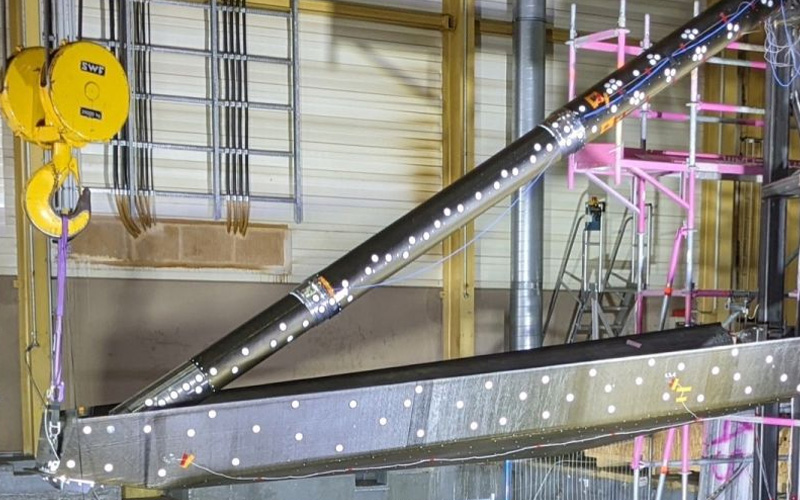
German aerospace manufacturing company MT Aerospace has begun testing a demonstrator of the landing legs that will be utilized aboard the Themis reusable booster demonstrator.
MT Aerospace is developing the Themis landing legs as part of the €39-million reuSable strAtegic space Launcher Technologies & Operations (SALTO) project. The project is funded through the EU Horizon Europe initiative, which complements the European Space Agency’s (ESA) Themis programme.
The landing legs that MT Aerospace has developed for Themis stand at seven metres tall and utilize carbon fiber-reinforced plastic (CFRP) composites. This makes the legs strong yet surprisingly light, with the company explaining that each leg could be carried by three or four people.
On 29 July, the company announced that the week prior, it had conducted an initial test campaign of the landing leg demonstrator. Testing began with small drop distances and was concluded with a full deployment test from the upright locked position.
According to an MT Aerospace statement, the leg “withstood all the impact energy” and “deployed properly.” The company explained that it is currently examining the test data before moving on with the development of the Themis landing leg.
ArianeGroup, the ESA-selected Themis prime contractor, had been expected to conduct an initial hop test of the demonstrator before the end of 2024. However, in a May 2024 presentation, the Swedish Space Corporation, which manages Esrange Space Centre where the initial hop test will take place, announced that the first Themis hop would only take place next year.

